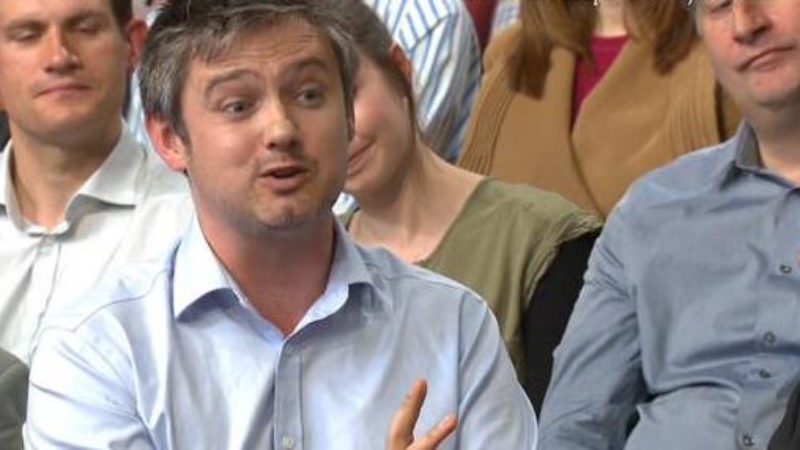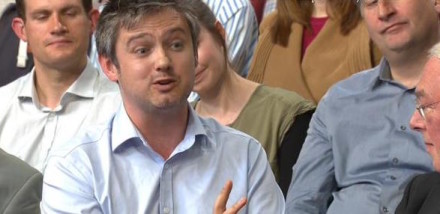

I am not quite sure where to begin with John Woodcock MP’s intervention in the leadership debate.
John is one of the most talented young MPs, with a brilliant record as a Special Adviser when we were in government. On two issues I am really passionate about, Israel and Trident, he is one of the most effective voices in parliament, saying things that need to be said on issues that are controversial but of incredible importance.
I understand the motive behind his article is to nudge Yvette Cooper and Andy Burnham towards the right and draw them into a policy debate on his preferred candidate, Liz Kendall’s terms. That’s the high politics. The low politics is to get a headline by starting a punch-up, and attract attention back on to Liz’s campaign, which needs publicity as she starts with the lowest profile of the candidates.
But the tone of the intervention, with its dismissal of Burnham and Cooper as “continuity Miliband with a different accent or gender” is unhelpful for the following reasons:
1) Both Burnham and Cooper stand a good chance of winning, so why give the Tories a ready-packaged line to use against them?
2) John and Liz could have to serve on the frontbench under one or other of them, so why sour that relationship during this contest?
3) It’s an unfair characterisation. Yes, neither proposes moving as far or fast from our 2015 platform as Liz does, but both have set out policies that don’t represent continuity. I’m unconvinced Andy can move enough to jettison the image as a left winger he acquired as Shadow Health Secretary, but he has actually made some quite bold pronouncements that cost him left wing support and arguably drew Jeremy Corbyn into the race, which John is just ignoring.
4) The specific example that John cites, on housing, was unlikely to have cost us votes this May. We all know the areas where Labour was unpopular – economic credibility, perceived in-Prime Ministerial image of Ed, immigration, Europe, probably inheritance tax with older voters. We need to address these in a way that is consistent with our values but we don’t need a wholesale approach of junking all our policies and moving to the right on every issue. There are things Labour said that were popular and the right thing for the country on say, the NHS, or house building, and we should stick to our guns on these.
5) There is no need to drag Ed Miliband’s name into this. He has stood down. He is not running. He knows and we know what went wrong in May. Using “continuity Miliband” as an insult will just irritate and upset those many people in the party who admired Ed personally and liked what he stood for.
6) In terms of the politics of Labour’s moderate wing, I am disappointed that John has chosen to emphasise what divides the three mainstream candidates without explaining that whilst these differences are real, they are minuscule compared to the ideological and policy differences between these three and Corbyn, so supporters of the three mainstream candidates need to use all their voting transfer preferences in the ballot to each other (ranking Burnham, Cooper and Kendall in some combination of 1, 2 and 3) to ensure Corbyn does not win.
7) From the perspective of the Kendall campaign she would likely need transfers from Burnham or Cooper supporters to win, so why alienate them?
8) If Kendall is eliminated, this negative bracketing together of Burnham and Cooper, despite Cooper’s politics being objectively between those of Burnham and Kendall, could have the perverse effect of deterring her supporters from transferring to the candidate nearest to her, and letting a more left wing candidate win.
9) We all have to work together both in our CLPs and in the PLP after this, so we all have an obligation to try to stop the debate getting so scratchy that grudges are created.
10) Tony Blair didn’t get elected as Leader with a platform as hardline as the one Kendall is promoting. He drew in significant support from the centre and soft left of the party – his campaign manager was the Soft Left Robin Cook. Whether you get there on first preferences by being as charismatic as Blair, or you do it on transfers in a later round of voting, the only way to get to 50% and become leader from the moderate wing of the Labour Party is by building a broad coalition including “Blairites” and “Brownites” and reaching deep beyond the centre of the party to get crossover votes from the Soft Left. David Miliband misjudged this and pitched too narrowly and lost. That miscalculation in the leadership election meant he never even got to run for PM.
I’m disappointed John. The contribution you can make to this debate could and should be at a far higher level.



More from LabourList
‘In facing up to the country’s problems, Labour needs to draw the line with the Conservatives on tax and spend’
Momentum co-chair and deputy council chief quit Labour over party direction
‘Tremendous results but more work to do’, says Labour campaign coordinator Pat McFadden